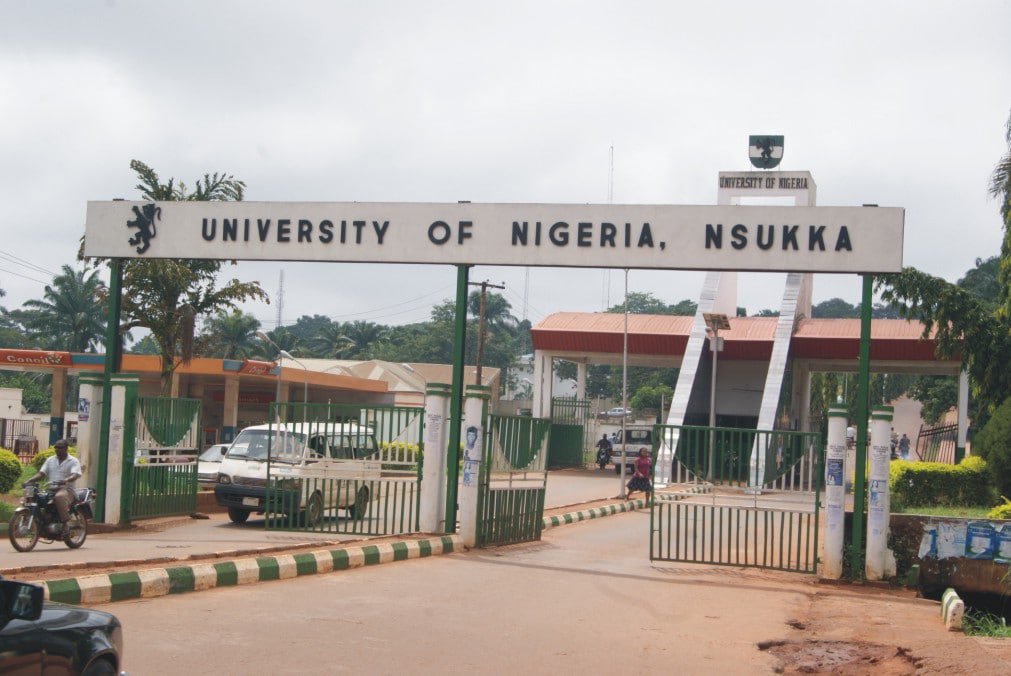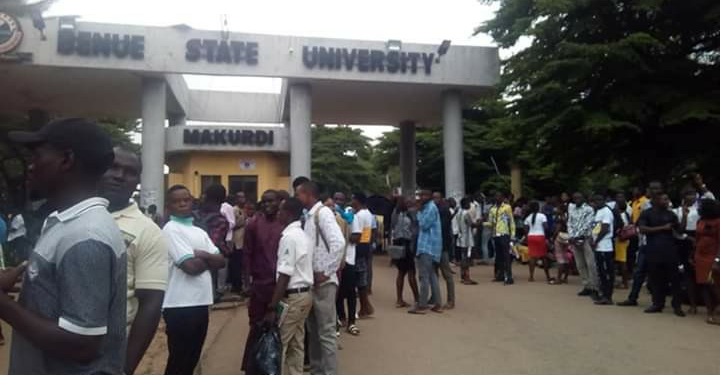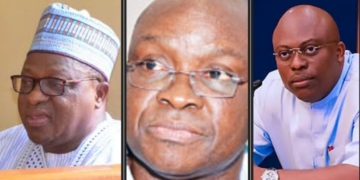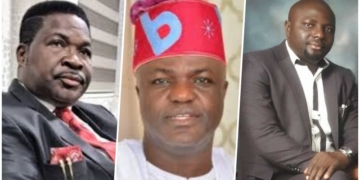- Universities hike tuition fees by 200%
- House of Reps suspended the hike
- NANS took hard stand, mobilized Nation wide protest
Parents, guardians and of course students of Federal Universities, Polytechnics, Colleges of Education across the Federation are currently scratching their heads to find solution to the proposed hike in tuition fees.
This is coming in the midst of fuel subsidy removal and soaring inflation in a country where minimum wage of a civil servant stands at N30,000.
Some Federal Universities have already announced hike in their tuition fees and other fees payable in their institution by up to 200% .
The tuition fees hike followed announcement of students’ loan program by President Bola Ahmed Tinubu few days after his swearing-in.
However, so far some universities have openly announced hike in their tuition fees and other fees payable in the school.
Recently, the University of Maiduguri (UNIMAID) University of Uyo (UNIUYO) University of Port Harcourt (UNIPORT) Michael Okpara University of Agriculture, Umudike (MOUAU) Federal University of Health Sciences, Azare (FUHSA) Federal University, Lafia (FULAFIA), Federal University, Dutse (FUD) Federal University, Kashere (FUKASHERE), University of Ilorin (UNILORIN), University of Nigeria, Nsukka (UNN) and Federal University of Technology, Owerri (FUTO) have all announced increments in their school fees and other sundry charges payable by students.
Others that have jacked up their fees also include Bayero University Kano (BUK), Niger Delta University (NDU), Bayelsa state, National Open University of Nigeria (NOUN), University of Ibadan (UI), Bayero University, Kano (BUK), Delta State University (DELSU), Abraka, among others.
The development has begun to raise fear among parents, guardians and students, as stakeholders have opined that this will add more burden to the already stressed economy, thereby bringing more hardship to the citizens.

Academic Union rejects the increment in tuition fees
On Sunday, July 9, the National Association of Academic Technologists (NAAT) equally rejected the hike, raising concerns that the recent 200 per cent increase in fees in federal universities may lead to students dropping out of school.
NAAT also kicked against the dissolution of Universities Governing Boards and asked the Federal Government to reinstate the dissolved boards.
In a statement issued by the NAAT President, Ibeji Nwokoma, at the end of its 52nd National Executive Council meeting, which was made available to journalists in Abuja on Sunday.
However, expressing their dissatisfaction over the recent increment in tuition fees in tertiary institutions, the association said: “NAAT is worried and concerned too with the recent development regarding the increase in fees and charges in our Federal Institutions, particularly Universities.
“This development may compel many of our students to drop out of school, occasioned by the current economic hardship facing parents and lack of adequate resources to meet up with economic demands.
“We are aware that over 200% increase in fees and charges are now being imposed by Universities authorities. NAAT, therefore, appeals to the government to consider the plight of the poor and rescind the decision by returning to the status quo until the loan issue is properly addressed.”
The association also said that the dissolution of the governing boards of universities was a setback for the growth and development of Nigeria’s Tertiary Education.
House of Representatives reacts to the hike
By and large, on Tuesday, July 11, the House of Representatives directed Federal Universities to immediately suspend the implementation of an increase in tuition fees by the institutions nationwide.
The directives WITHIN NIGERIA gathered, followed the adoption of a motion moved by Hon. Aliyu Sani Madaki from Kano at the plenary.
While presenting the motion Hon, Madaki, citing the poor funding of Tertiary Education and rising inflation in the country, Federal Universities across the country increased their tuition fees from 100 per cent to 200 per cent and hostel charges from 50 per cent to 100 per cent.
Identifying the Universities that hiked their fees as Bayero University, Kano (BUK), the University of Nigeria, Nsukka, the University of Uyo, University of Maiduguri, Michael Okpara University of Agriculture, Umudike and Federal University, Dutse, among others, Hon. Madaki expressed concerned over the situation.
In his words, “concerned that the increase could cause disruptions for a number of students who cannot afford the fees and, while many of them would be forced to defer their studies, others could drop out.
“Worried that the hike may aggravate the already volatile situation in the country, as students are already making threats which could lead to an uprising against the Federal Government, with grievous consequences for the country as a whole.
“Also worried that an increased rate of university dropouts may further worsen insecurity in Nigeria as the frustrated students may find the wrong outlets to express their grievances; cognizant that tertiary education is imperative in fostering growth, reducing poverty, and boosting the prosperity of any nation.”
Adopting the motion, the House urged the National Universities Commission to implement the resolution and mandated the Committee on Tertiary Education and Services (when constituted) to investigate the increase of fees by Federal Universities across the country.
Nevertheless, in what seemed like an exercise in futility, few days after the law makers gave suspension order, on Friday, July 21, there were speculations that the management of the University of Lagos (UNILAG), Akoka, Lagos, may have joined other universities to hike tuition fees for undergraduate students from N19,000 to N190,250.
Although this information has not been confirmed independently at the Press time, the Senior Staff Association of Nigerian Universities, UNILAG branch, was said to have disclosed this development in a statement dated July 20, 2023, when he said the Vice Chancellor Prof. Folasade Ogunsola informed them of the increase at a meeting.

According to UNILAG’s SSANU with the new tuition fees structure, undergraduate students studying Medicine would pay N190,250; laboratory and studio-use students are to pay N140,250; and those without laboratory and studio-use will pay N100,750.
According to SSANU, Prof. Ogunsola met with representatives of the three non-academic staff unions on Thursday, July 20th to discuss issues concerning members’ welfare.
The statement further said, “During the meeting, the proposed fees for undergraduate students of UNILAG were disclosed.
“Students without lab and studio use will pay N100,750, those with lab use will pay N140,250 and the college of medicine would pay N190,250.”
The vice chancellor was quoted to have said the new tuition fees were set nationally and could not be modified for specific categories of students, after a SSANU member at the meeting asked if they would be a rebate for members of staff with children in the university.
Prof. Ogunsola was said to have given the option of staff paying in installments, provided they paid up one month before their final exams.
Rationale behind the hike
Universities that have hiked their tuition have asserted high cost of living, fuel subsidy removal to the reasons behind their decision.
According to the Universities authorities, poor funding is the major reasons for the hike in the fees.
For instance, in a statement signed by UNILAG’s Public Relations Officer, Adejoke Alaga-Ibraheem. partly stated that, “the adjustment in fees which will take effect from 1st Semester, 2023/2024 Academic Session, is in view of the prevailing economic realities and the need for the University to be able to meet its obligations to its students, staff, and municipal service providers among others.”
How Universities/Education sector are poorly funded by Federal Government
In the last six years, Nigeria budgeted N3.6 trillion out of N55.3 trillion for education.
According to WITHIN NIGERIA findings the period covers the year 2016 to 2021. In 2016, out of the total budget of N6.06 trn, the sum of N369.6 billion or 6.7% of the budget was allocated to public education.
In 2017, N550 bn or 7.38% was allocated to education out of N7.29 trn budget, while in 2018, N605.8 bn or 7.04 % was given to education out of N9.2 trn budget.
Also in 2019, N620 bn or 7.05% was allocated to education out of the budget of N8.92 trn, while in 2020, N671.07 bn or 6.7% was given education out of N10.33 trn budget.
However, in 2021, N742.5 bn or 5.6% was allocated to education out of a budget of N13.6 trn. On the other hand, according to reports by the World Bank, Ghana allocated 23.81% of its national budget for education in 2015, 22.09% in 2016, 20.1% in 2017 and 18.6% in 2018.
In 2022, N17 trillion budget was signed into law at the end of 2021, 7.2 per cent is allocated to the education sector. This is a step forward – an increase from 5.7 per cent allocated for 2021 – though there is still a long way to go to reach the internationally recommended benchmark that countries spend 15-20 per cent of their national budgets on education.
Also in 2023, N1.79 trillion out of the total N20.5 trillion budget proposals, representing 8.8% of the budget.
Unlike in South Africa, it has kept increasing allocations to the education sector from R246 billion or 16.7 % in 2018, R310bn in 2019, R 387bn in 2020 and projected that it hit R416 bn by 2023/24.
By and large, for federal universities, schools fees are paid into the TSA and the money goes into the coffers of the Federal Government which gives the institutions subventions from the general purse and pays the university workers.
In any case, to give an idea of how much could accrue from fees, the University of Nigeria, Nsukka, has a population of about 35,000 students and each student pays N50,000 as fees giving a sum of N1.75 billion.
The Federal University of Technology, Akure, FUTA, has about 5,000 students and charges an average of N30,000 as fees giving a total amount of N150 million.
Regarding the numerous certificate, diploma and other part or full time courses run by the universities, what happens is that monies from them are paid into accounts different from TSA, but after making provisions for payment of lecturers, running costs and other costs, whatever is left is paid into the TSA. The same goes for JUPEB, IJMB and others run by the universities.
NANS talks tough, rejects the hike
Expectedly, following the ding-dong affair that followed the tuition fees hike in these universities, the National Association of Nigerian Students, NANS, on July 22, rejected the hike by the institutions across the Federation.
In a statement signed by its national spokesman, Giwa Temitope, declared that government’s action was “insensitive” and “embarrassing.”
The NANS also stated that the government has what it takes to fund education and make it accessible, while noting that the introduction of the student loan scheme was a sham and bait to make Nigerians accept fee increment.
The association stated that there was no justification for an increase in school fees across tertiary institutions and unity schools in the country. It demanded that the increase in school fees should be suspended, adding that those who have implemented the policy should reverse it immediately.
The students’ association called on Nigerian students to prepare for an all-round protest similar to the one during the prolonged strike by the Academic Staff Union of Universities (ASUU) until the federal government reverses the policy.
“The increment of school fees at the University of Lagos and the planned increment across tertiary institutions in the country have shown this administration to be a very insensitive one.
“As a matter of fact, it is most ridiculous and embarrassing that the government will be introducing an increment of fees without thinking of rescuing over 133 million Nigerian people from multidimensional poverty.
“Increment of fees across tertiary institutions will only complicate the poverty situation of the country and increase the number of out-of-school children.
“As an association, we believe that the Nigerian government has what it takes to massively fund education and make it accessible,” the NANS stated.




Discussion about this post